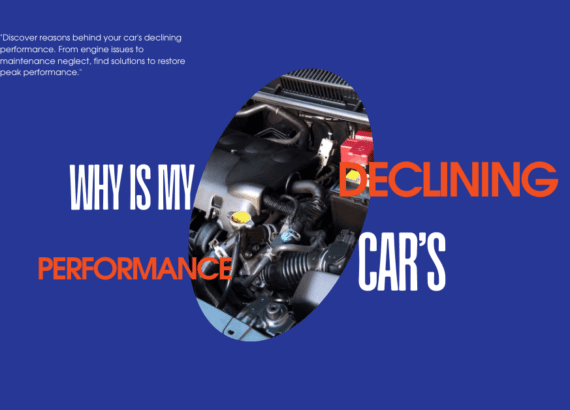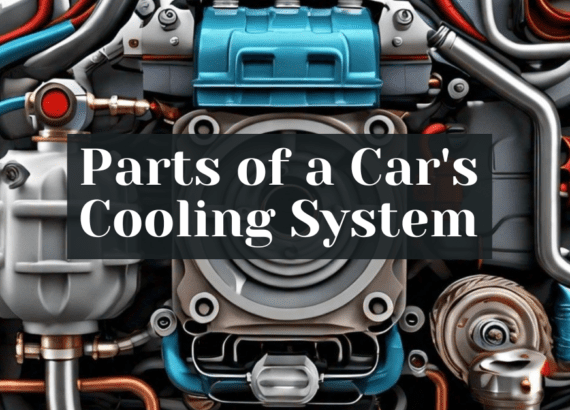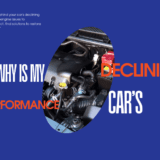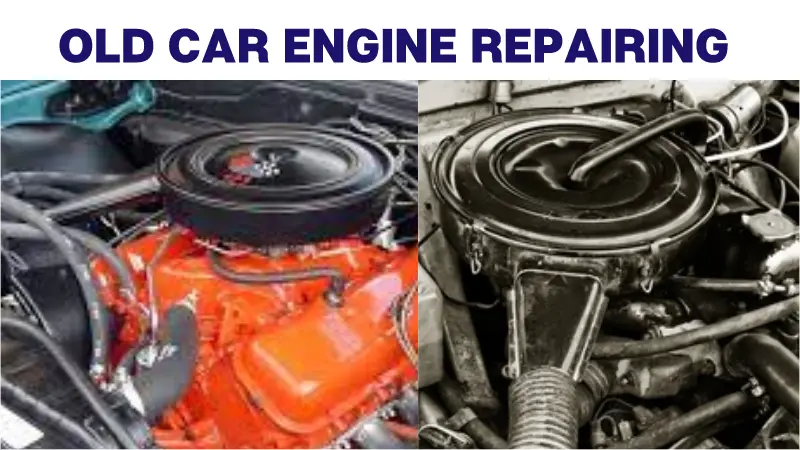Differences in Petrol, Diesel & Lesser-Known Fuels

Delving into the intricate world of car fuels, one must not only consider the pros and cons of petrol and diesel but also how alternative technologies are beginning to emerge. In my experience tinkering with various car engine types, I’ve observed a shift as drivers move away from diesel. Although diesel offers more miles per gallon, environmental concerns and taxes are prompting diesel motorists to reconsider. Petrol, on the other hand, has always been the go-to for a greater number of vehicles on the road. With every petrol station equipped with ample pumps to serve both standard forms of unleaded and Super Unleaded fuel.
Prospering Alternatives: Exploring LPG and Autogas
Now, let’s explore a different angle — the rise of LPG and Autogas. These fuels represent another shift as drivers question what truly sets apart these new fuels from more traditional options. The tangible benefits of LPG, such as lower costs and reduced emissions. Are attractive for those looking to balance environmental impact with performance. Throughout my experience, I’ve found LPG to be especially kind to a car’s fuel system. Helping to ensure optimum engine health and performance.
Electrifying Development: Hybrid and Electric Advances
When we weigh the evolution of electric and hybrid technology. It becomes clear that these powerhouses are fast becoming best-in-class for eco-conscious consumers. Their meteoric rise can’t be ignored, and as the technology has been produced, the shift is palpable. These vehicles are best suited for those who prioritize sustainability and look towards a greener future. Perhaps even more than Autogas or super unleaded can offer.
Petrol, Diesel & Lesser-Known Fuels
- Diesel engines employ a combustion process that is more efficient compared to petrol engines. Primarily due to the higher calorific value of diesel fuel which packs more megajoules per kilogram.
- Although petrol is lighter and not as dense as diesel. It remains popular due to its lower production costs and a spark-ignited process that appeals to a broad range of vehicles.
- New, low-compression models of diesel engines are enhancing efficiency. Providing an impressive power output while maintaining lower fuel consumption—measured in liters per 100km—and often considered more efficient under the principle of ceteris paribus.
- The energy density of diesel versus petrol varies. With diesel being heavier and yielding more energy by volume, which influences fuel consumption rates and efficiency statistics.
- Practical observations have revealed that regardless of the higher efficiency and energy density of diesel. The type of fuel selected can result in differing levels of CO2 emissions per km traveled. A crucial aspect to consider given current environmental considerations.
How Fuels are Produced
Petrol
Certainly, utilizing bullet points can create a concise and effective way to present the complex process of fuel production. Here’s an approach focusing on Petrol and its production:
- Crude Oil Extraction: The life of petrol begins in vast oil fields, where crude oil is carefully extracted and set on a journey from the depths of Earth’s surface to be the lifeblood of countless vehicles.
- Transportation and Refining: The oil pipelines play a crucial role, as the crude is transported to a refinery tank. Where it is heated to separate components at high temperatures—a dance of physics that orchestrates the rise of vapors that later condense back into liquid.
- Distillation Process: In this process, the refinery becomes an alchemist’s lab, transforming crude oil into various grades of fuel; petrol evolves through refining process phases that ensure it meets the exacting requirements of modern engines.
- Fueling Vehicles: Once refined, petrol is siphoned off and systematically transported across the country– ensuring its presence at fuel stations. Ready to power everything from the smallest cars to the mightiest trucks on motorways and A roads.
- Environmental Impact and Regulations: It’s hard to ignore the environmental concerns with fossil fuels; as such, there is a shift towards more economical and energy dense options. Along with clean diesels brought on by stricter regulations.
- Changing Landscape of Diesel: The backdrop of this entire process. Is the changing landscape in fuel use, marked by a cost-conscious public and a shift in preference due to environmental impacts. Causing a significant hike in taxes on diesel cars and a decline in sales to the lowest level since 2003/04.
Each bullet point denotes a crucial step or aspect in the life cycle of petrol production and usage. From crude oil to the moment it powers an engine. And although the production process is steeped in tradition and complex chemistry terms. Society’s rising environmental concerns and the push for more economical options are rapidly altering the fuel narrative.
LPG Autogas

Certainly, here are five bullet points which could be related to various contexts, as the topic was not specified:
Market Analysis: Conducted comprehensive research to evaluate competitor strategies, consumer behavior, and market trends to inform business planning.
Product Development: Led a cross-functional team to design, test, and launch. A new software application that improved user engagement by 25% within the first three months.
Sales Growth: Implemented a targeted digital marketing campaign. That resulted in a 40% increase in online sales and a 15% uptick in brick-and-mortar store visits.
Operational Efficiency: Overhauled supply chain management processes, yielding a 30% reduction in waste and a 20% cut in delivery times.
Customer Satisfaction: Initiated a customer service training program that contributed to a 10-point increase in Net Promoter Scores (NPS) and a 5% rise in return customers.
Please let me know if these bullet points need to be tailored to a specific topic or context.
Fuel Types and Cars
Petrol
Driving through the bustling town, my petrol-fueled hatchback feels like an all-round performer. Petrol engines have a less complex compression process compared to diesel. Making them more affordable and economical for many family cars. My experience tells me that for those frequenting the city streets and needing a reliable vehicle for motorway drives, a petrol car can be the smart choice. Manufacturers typically recommended petrol for small cars, which dominate as eco-focused options ideal for urban conditions. The fuel burns cleaner, which is why my commute in a petrol car feels both economical and responsive, especially when I’m darting across the road network.
Diesel
When it comes to sheer power and torque, diesel engines stand out. My friend’s Ford Fiesta, a diesel version, markedly outperforms the petrol model during our weekend trips on faster roads. Sure, modern particulate filters have blocked some of the free-flowing nature associated with diesel fuels, but the fuel economy gains in heavy vehicles like vans, 4X4s, and even high-end hatchbacks like Vauxhall Corsa can’t be ignored.
Diesel engines offer that extra grunt, making them suitable for overtaking on open roads – a clear advantage over many petrol cars. However, in town driving, where commercial vehicles and trucks slog it out, the difference becomes less pronounced.
LPG Autogas
Those living in urban areas, zipping around in city cars or small cars find that LPG Autogas is a great choice. The savings it offers can significantly offset the poor economy figures of powerful, high-capacity engines. The cost benefit is tangible: filling up your car with LPG costs a fraction compared to traditional fuels, and you’ll burn less fuel even if you only live in town. LPG may not be as widespread as petrol or diesel, but for those driving hatchbacks and seeking to balance fuel costs and savings, it’s a fitting option.
Biofuels
By driving a car powered by biofuels, you can feel the impact of an eco-friendly choice. Car manufacturers like Ford and Audi offer vehicles that can run on this type of fuel—it’s an excellent development for those of us who drive in congestion charge areas and desire a decent economy.
Biofuels offer a solid ratio of performance to fuel efficiency, which serves specific drivers and motorway users well. With the added bonus of being a cleaner gasoline option, driving on biofuels provides clear benefits; you’re no longer just moving from A to B, but also contributing to developing products that help conserve our planet’s resources.
Caring for Your Car’s Engine with Redex
Fueling and maintaining your car’s engine is a crucial aspect of ensuring its longevity and optimal performance. Redex offers a range of products designed to cater to both petrol and diesel engines, promoting enhanced efficiency and overall health.
Petrol: Boosting Performance
Innovative Additives: Redox’s Petrol System Cleaner introduces an innovative blend of additives to remove deposits in fuel injectors, significantly improving the life and performance of your petrol engine.
Lead Replacement for Classics: For owners of older classic cars, Redex provides a Lead Replacement additive that allows the use of standard unleaded petrol, ensuring smooth operations and engine longevity.
Concentrated Cleaning: The concentrated formula of Redex Advanced Fuel System Cleaner delivers an intensive clean, effectively removing deposits built up over thousands of miles and incorporating a friction modifier for a complete fuel system cleanse.
Emissions Reduction: Redex Petrol Emissions Reducer not only deep cleans your engine and fuel system but also reduces harmful emissions, making it an essential product for passing MOT tests and contributing to a cleaner environment.
Environmental Responsibility: By choosing Redex, you actively participate in reducing your car’s environmental impact, showcasing a commitment to responsible driving and engine maintenance.
Diesel: Optimizing Longevity
Deep Cleaning for Efficiency: Redox Diesel System Cleaner offers a deep clean, addressing blocked fuel lines, optimizing fuel economy, and catering to high mileage and hybrid cars.
Emissions Reduction for Cleaner Driving: The Diesel Emissions Reducer not only lowers emissions but also maintains a clean particulate filter, ensuring a well-cared-for diesel engine and contributing to cleaner driving.
Fuel Flow Optimization: Redex Diesel System Cleaner improves fuel flow, preventing deposits in the fuel tank, and enhancing overall fuel economy, making it an economic choice for diesel engine owners.
Proactive Maintenance: Regular use of Redex products for diesel engines is a proactive measure, extending the engine’s life, ensuring optimal performance, and preventing issues that may lead to warning lights and costly repairs.
MOT Test Success: With Redox additives, diesel engine owners can confidently approach MOT tests, knowing that their engines are well-maintained, emissions are reduced, and their vehicles meet environmental standards.
Incorporating Redox into your routine car maintenance not only elevates your increase engine’s performance but also reflects a commitment to responsible and sustainable driving practices. Whether you drive a petrol or diesel vehicle, Redox has the products to cater to your specific engine care needs.
Conclusion
In conclusion, caring for your car’s engine with Redox goes beyond routine maintenance – it’s about optimizing performance and embracing a commitment to responsible driving. The innovative additives in Redox’s Petrol System Cleaner ensure a deep clean, improving fuel injectors and enhancing the overall life of your petrol engine.
For classic cars, the Lead Replacement additive offers a bridge to standard unleaded petrol, maintaining smooth operations. On the diesel front, Redux Diesel System Cleaner provides a deep clean for efficiency, reduces emissions, and optimizes fuel flow, contributing to a well-cared-for engine. Incorporating Redux into your routine not only guarantees success in MOT tests but also aligns with environmental responsibility. Redux products empower you to drive with confidence, knowing your engine is not just well-maintained but also environmentally conscious, representing the future of car engine care.
FAQs
How do petrol and diesel differ as fuels?
In petrol engines, gas and air are mixed, and then compressed and ignited. Another difference is, of course, in the type of fuel used. Diesel is heavier than gasoline and, therefore, evaporates slower. It emits fewer amounts of CO2 and methane but produces higher levels of harmful nitrogen compounds.
How can I tell the difference between diesel and petrol?
diesel comes in a yellow container. The color of diesel itself is black but petrol comes in light red and light green color. You can also differentiate them by smelling. They have different smells.
What are three differences between gasoline and diesel fuel?
So, in practical use, gasoline burns faster, which allows it to produce more power or horsepower. Whereas Diesel fuel is thicker in density, it evaporates more slowly. It has a higher energy density, which means that 20% more energy is produced from Diesel than the same amount of gasoline.
What happens if you put petrol in a diesel car?
When you put petrol in a diesel car the engine won’t start. The mixture of different fuels will cause a misfire, and the petrol will also damage the injectors and fuel pump. This is because petrol increases the friction between the different parts of your engine, whereas diesel is more lubricating.
Will petrol float on diesel?
At first, the petrol will float on top of the diesel and won’t get sucked into the low-level fuel pick-up. Then, very gradually, it will disperse into the diesel fuel.
Is gasoline and petrol the same thing?
Gasoline also known as petrol is an energy-dense secondary fuel that can be thought of as an energy currency. It is used to power many heat engines, most importantly it acts as a fuel for a large proportion of cars.











